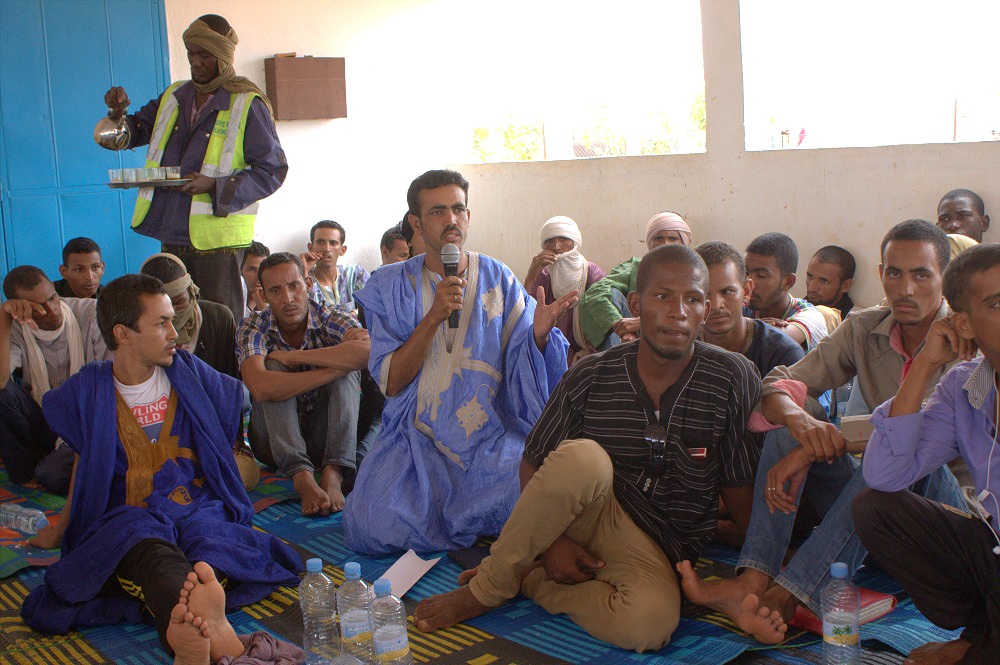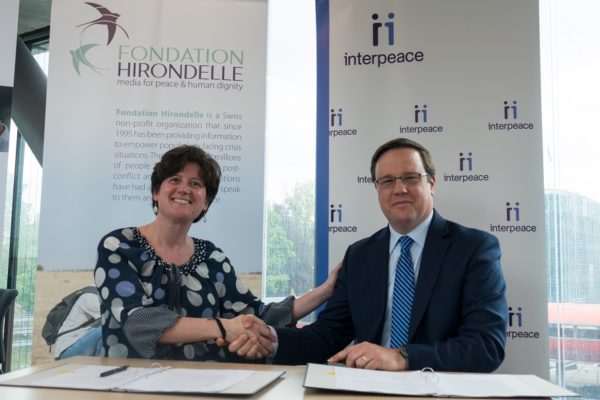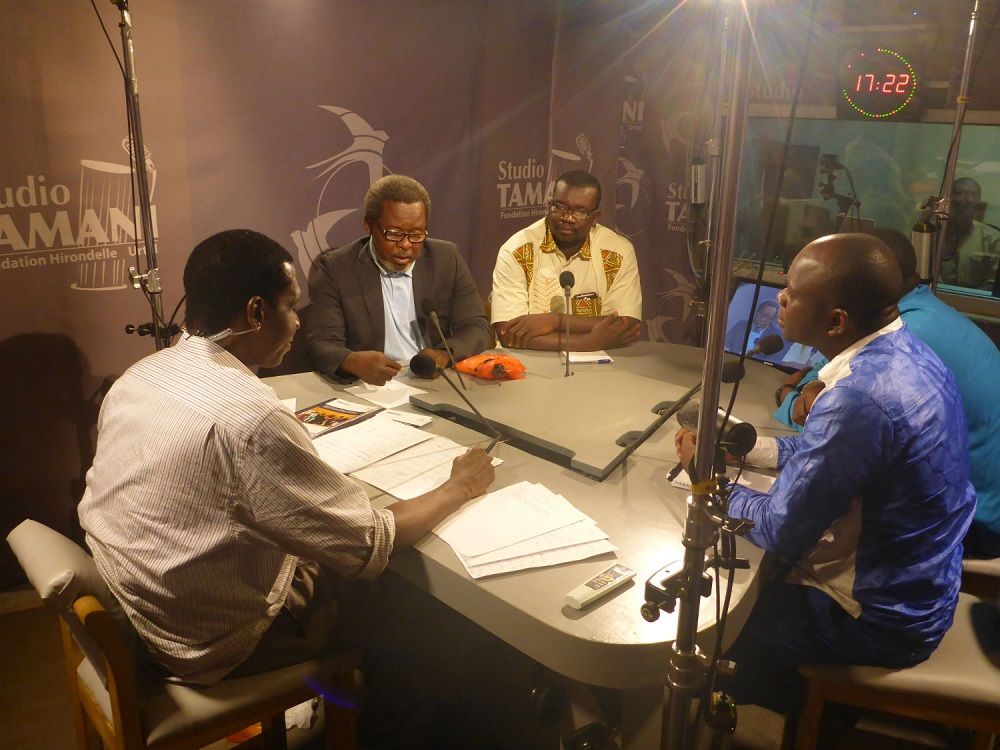Rebuilding trust through dialogue and access to independent information

In conflict-affected countries, access to independent information and news can be threatened by political and economic elites. In these contexts, manipulation of the media and stigmatization can create more division and mistrust between communities. To envision sustainable development and the possibility of lasting peace in these vulnerable contexts, support to free and professional media that enables democratic dialogue is a priority. Fostering an environment of trust through dialogue is a core objective of both Interpeace and Fondation Hirondelle, who have over forty years of combined experience promoting conflict resolution in fragile countries around the world.
On May 4, 2017 Interpeace signed a partnership with Fondation Hirondelle, to strengthen our collaboration working in societies affected by conflict. This partnership will create new and stronger alliances between journalists, researchers, peacebuilders and local communities, to jointly foster open dialogue and access to independent information, in order to help build more democratic and peaceful societies.

Caroline Vuillemin, Director-General of Fondation Hirondelle and Scott M. Weber, Director-General of Interpeace. Photo credit: ©Fondation Hirondelle/Fabian Jobin
As stated by Scott M. Weber, Director-General of Interpeace: “One of the key aspects of a more peaceful society is one where there is greater transparency and accountability of the authorities and of the information that is available.”
Fondation Hirondelle is a Swiss organization of journalists and humanitarian aid professionals, that creates and supports independent media in contexts facing crises, enabling citizens to hold their leaders and institutions accountable, as well as providing an open space to discuss and reflect on pressing issues. Meanwhile, Interpeace works to facilitate dialogue processes that allows all members of society to participate in transforming conflict. Therefore, by combining our experience and expertise, Interpeace and Fondation Hirondelle will seek to enhance the way people in vulnerable contexts generate and receive information.

Studio Tamani in Mali. Photo credit: Fondation Hirondelle
Interpeace began working with Fondation Hirondelle in 2013 during the Malian crisis, to support the development of a national scale citizen dialogue. Together with our local partner the Malian Institute of Action Research for Peace (IMRAP), Interpeace launched a participatory and inclusive research process that involved almost 10,000 people across the country. This research was published in a reportage et un film called “Self-Portrait of Mali on the Obstacles to Peace.”
The results and lessons learned from this research were presented and discussed on the radio program Studio Tamani, which was created by Fondation Hirondelle, in partnership with Interpeace and supported by the European Union. Through this independent radio program, a culture of democratic debate began to emerge in Mali, where journalists, researchers and local actors exposed and informed the population of the major causes of crisis in the region and the possible solutions to build peace in the country.
Due to the success of this collaboration in Mali, Interpeace and Fondation Hirondelle will continue to work together, supporting regions in conflict build more democratic and inclusive societies. Caroline Vuillemin, Director-General of Fondation Hirondelle, describes: “With Interpeace working from the ground, bringing up solutions from the people and Hirondelle’s media in the country giving these messages a national reach and a wider audience, we can together act to promote and build lasting peace.”
A message from Caroline Vuillemin, Director-General of Fondation Hirondelle and Scott M. Weber, Director-General of Interpeace:
